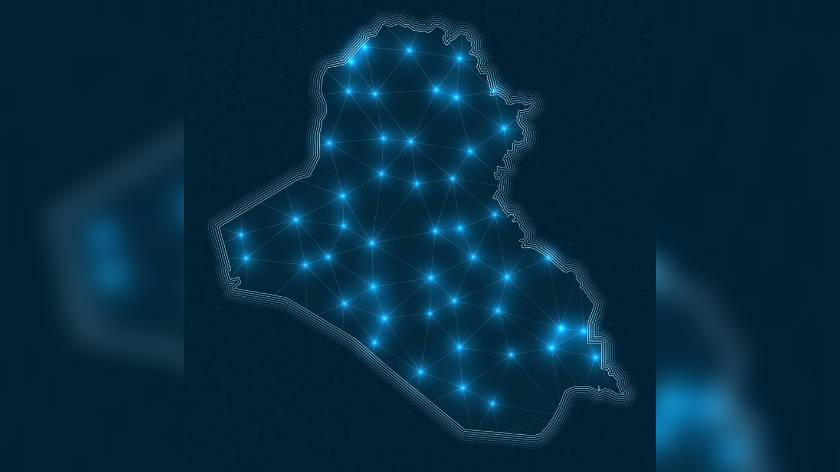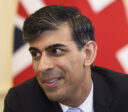This momentum is being fuelled by a combination of increasing smartphone penetration, surging internet usage and government-backed initiatives aimed at accelerating the deployment of digital infrastructure.
While challenges around regulation, infrastructure gaps and service affordability remain, Iraq’s telecoms market has reached a point where investment and innovation are converging to create fresh opportunities.
10000705
At the same time, Iraq’s strategic geographic location, connecting the Middle East to Europe, offers the potential to build low-latency, terrestrial connectivity routes that provide an alternative to subsea systems landing in Southern Europe. These dynamics are positioning Iraq as one of the most compelling connectivity frontiers in the region.
With a population of more than 45 million and a relatively young demographic profile, Iraq is experiencing a surge in demand for data-driven services. Mobile penetration now exceeds 100%, with over 40 million active connections, and internet penetration has climbed to more than 80%. A large portion of Iraq’s population accesses the internet primarily via smartphones, making mobile broadband a key enabler of digital participation.
This growth is reflected in consumer behaviour, with demand for video streaming, social media and OTT platforms rising sharply.
Enterprises across sectors such as banking, energy and government are also demanding higher levels of connectivity and reliability. As a result, operators are investing in both mobile and fixed broadband to keep pace with user expectations and to support new use cases.
At the centre of Iraq’s telecoms development is the drive to build a more robust and extensive fibre backbone. Fibre projects across the country are accelerating, with operators and government stakeholders seeking to establish resilient domestic and international corridors. These corridors not only enable better connectivity for Iraqi users but also unlock Iraq’s potential as a regional transit hub.
By offering terrestrial alternatives for data traffic between Asia and Europe, Iraq could complement, and in some cases bypass congested and politically sensitive subsea routes through the Red Sea and Mediterranean.
The vision is to position Iraq as a vital link in future digital trade routes, with the potential to host critical cross-border infrastructure and data centre investment.
The Iraqi mobile market continues to be dominated by three players: Asiacell, Zain Iraq and Korek Telecom. Together, they account for the vast majority of mobile connections and are responsible for expanding both coverage and quality of service.
Asiacell and Zain Iraq in particular have been pushing forward with 4G rollouts, and early moves towards 5G are beginning to take shape as regulators prepare to allocate spectrum and encourage network modernisation.
In fixed broadband, the market is more fragmented, with a mix of government initiatives and private sector players driving FTTH deployments in urban centres such as Baghdad and Erbil. While coverage remains uneven, demand for high-speed fixed internet services is growing rapidly, particularly among businesses and in middle-class households.
The government has set out ambitions to modernise Iraq’s digital infrastructure, recognising telecoms as a critical enabler of economic diversification and growth. Initiatives include expanding FTTH coverage, developing e-government services, and supporting private investment in fibre and data centre facilities.
Regulatory hurdles remain a challenge, however. Licensing complexity, inconsistent oversight and legacy state involvement in the sector have sometimes slowed progress. Greater clarity on policy frameworks, spectrum allocation and investment incentives will be crucial to unlocking the full potential of the Iraqi market.
Despite these challenges, the fundamentals of Iraq’s telecoms sector remain highly attractive. Demand for connectivity is outpacing supply in many areas, creating opportunities for operators, vendors and investors. Key areas of opportunity include:
- 5G deployment: preparing networks for next-generation mobile broadband to support advanced use cases.
- Fibre-to-the-home (FTTH): expanding urban coverage and improving quality of service for households and businesses.
- Cross-border connectivity: establishing Iraq as a low-latency transit hub between Asia and Europe.
- Cloud and data centres: enabling local hosting and reducing reliance on international capacity.
- Digital services and OTT: tapping into rising demand for content, e-commerce and digital payments.
The convergence of these factors makes Iraq one of the most dynamic emerging telecoms markets in the Middle East.
Iraq stands at a crossroads in its digital journey. On one hand, legacy infrastructure and regulatory bottlenecks continue to pose barriers to rapid development. On the other, unprecedented demand for connectivity, combined with strong demographic and geographic advantages, is creating the conditions for transformative growth.
Industry leaders increasingly view Iraq not only as a consumer market but also as a strategic transit corridor that could reshape regional connectivity patterns. With the right investment and collaboration, Iraq could emerge as a digital hub linking East and West, delivering benefits for local users and the wider regional ecosystem.
Against this backdrop, Capacity Iraq Connect will bring together the region’s most prominent digital infrastructure executives, government officials and investors committed to building the digital future of Iraq.
RELATED STORIES
Deputy Editor Capacity Media







